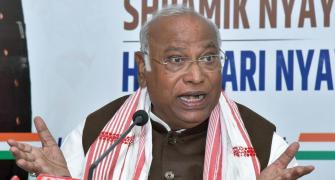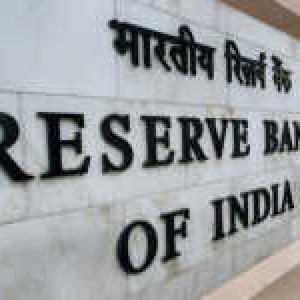The forthcoming Union Budget comes in the backdrop of slowing economic growth, high fiscal deficit because of lower than estimated tax collections and runaway subsidies and amidst an environment where the government is seen to be stuck by policy paralysis and at best muddling along as far as the economic reform agenda is concerned.
 The Centre's fiscal deficit for FY12 is expected to be higher by 100 bps over the budgeted fiscal deficit; this budget is therefore expected to have a thrust towards fiscal consolidation. If the slippage is indeed 100 bps, then to meet the Centre's FY13 fiscal deficit target of 4.1% as outlined in the medium term fiscal policy statement in the FY12 Budget, the reduction in the fiscal deficit required for FY13 would be around 150 bps of GDP from the FY12 level of around 5.6%. This is also important as the Reserve Bank of India has made policy rate cuts contingent on sustained decline in inflation, fiscal consolidation and progress on key supply-side reforms.
The Centre's fiscal deficit for FY12 is expected to be higher by 100 bps over the budgeted fiscal deficit; this budget is therefore expected to have a thrust towards fiscal consolidation. If the slippage is indeed 100 bps, then to meet the Centre's FY13 fiscal deficit target of 4.1% as outlined in the medium term fiscal policy statement in the FY12 Budget, the reduction in the fiscal deficit required for FY13 would be around 150 bps of GDP from the FY12 level of around 5.6%. This is also important as the Reserve Bank of India has made policy rate cuts contingent on sustained decline in inflation, fiscal consolidation and progress on key supply-side reforms.
The focus of the Finance Minister (FM) is likely to be on revenue enhancing measures. The expectation is therefore of a further rollback of fiscal stimulus launched during the global financial crisis in 2008-09. The news flow suggests that the FM is expected to increase the excise duty and the service tax by 2% to pre-Global Financial Crisis level of 12%. In Jan'12, the Empowered Committee of State Finance Ministers on GST (Goods and Services Tax) had approved imposition of service tax based on a negative list of services after the Central Board of Excise and Customs (CBEC) came out with a draft report in Dec'11. The Budget can thus be expected to move to a 'negative service tax list' wherein all services except a few defined under the negative list, would be taxed. This would significantly broaden the tax base, and could be seen as a precursor to the introduction of GST.
While the bigger burden of increase in revenue collection would fall upon the indirect taxes, on the direct taxes there could be rationalization & simplification and base expansion and in line with that we could see reduction in surcharges for corporates, withdrawal of some tax exemptions and increase in the rate of Minimum Alternate Tax (MAT). While the implementation of Direct Tax Code (DTC) has got delayed, and though it stands diluted from its original avatar, some clarity on its implementation would be welcome. One could also expect measures which restrict the benefits through tax havens and steps to track unaccounted money.
In terms of non-tax revenue, given the recent upturn in the stock market, the government would again be looking for higher disinvestment proceeds in FY13, given that it would end FY12 missing its disinvestment targets by a wide margin. With the Supreme Court canceling the 122 2G licenses issued by the government in 2008, the government would be looking to raise money from spectrum auction. These set of revenues would reduce the fiscal deficit, however these are not structural and sustainable sources of revenue and therefore ideally should be factored in accordingly.
The FM is reported to have said that he is losing sleep over subsidies, the spiraling of which is of grave concern indeed. It is not just the quantum of fiscal deficit, but the quality of it which is even more important. By resorting to short-term populism, increasingly the tilt of government expenditure is more towards consumption rather than investment. At least in this budget one is expecting the subsidies to be reined in as the next general elections are still two years away and the short-term populism can be expected to be on a lower keel. However, given the possibility of the National Food Security Bill being passed sometime during FY13, the FM may make some allocations for it in the expenditure.
One of the major culprits for soaring subsidy bill is the fuel subsidy. In FY12, increase in fuel subsidy alone would account for fiscal deficit going up by around 1% of GDP. The government should free up diesel prices and also begin to revise kerosene and LPG prices in a calibrated manner. We could also see higher excise duty on diesel cars, as we have seen diesel cars far outsell petrol cars making India one of the highest skewed markets in the world in this respect; however, a better way to address this skewness would remain deregulation of diesel prices. Also, addressing urea price decontrol has become imperative, as in the current environment where non-urea fertilizer prices have shot up massively has worsened the skewness towards the urea usage by the farmers which is very bad for them from a medium to long term perspective.
The FM could also be expected to make some positive, reform oriented policies and announcements in the agriculture and social sector.
We can also expect to see some steps for giving infrastructure development a fillip. Addressing issues like poor financial state of State Electricity Boards, the lagging mining sector output, land acquisition and environmental clearances, which are all holding back the pace of infrastructure development would be very important. We could also see measures and initiatives to address infrastructure financing and funding needs.
In the last few years, the Budget was increasingly being seen as just the presentation of Government's annual accounts, as much of the structural economic reforms had started to happen outside the Budget presentation. However, given the policy paralysis that has plagued the government in the last one year, there is high expectation that post the state elections in five states; the FM would take the opportunity of Budget presentation to make some important forward looking policy announcements.
A positive body language, serious intent, fiscal consolidation, fiscal spend which invests in the basic building blocks rather than leaky populist consumption due to ineffective transmission, a robust policy framework and reform agenda which instills confidence and puts our economy on our potential growth path are the expectations of an aspirant India. I fervently hope that the Finance Minister delivers.









